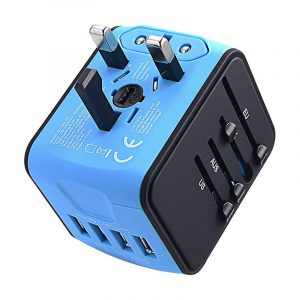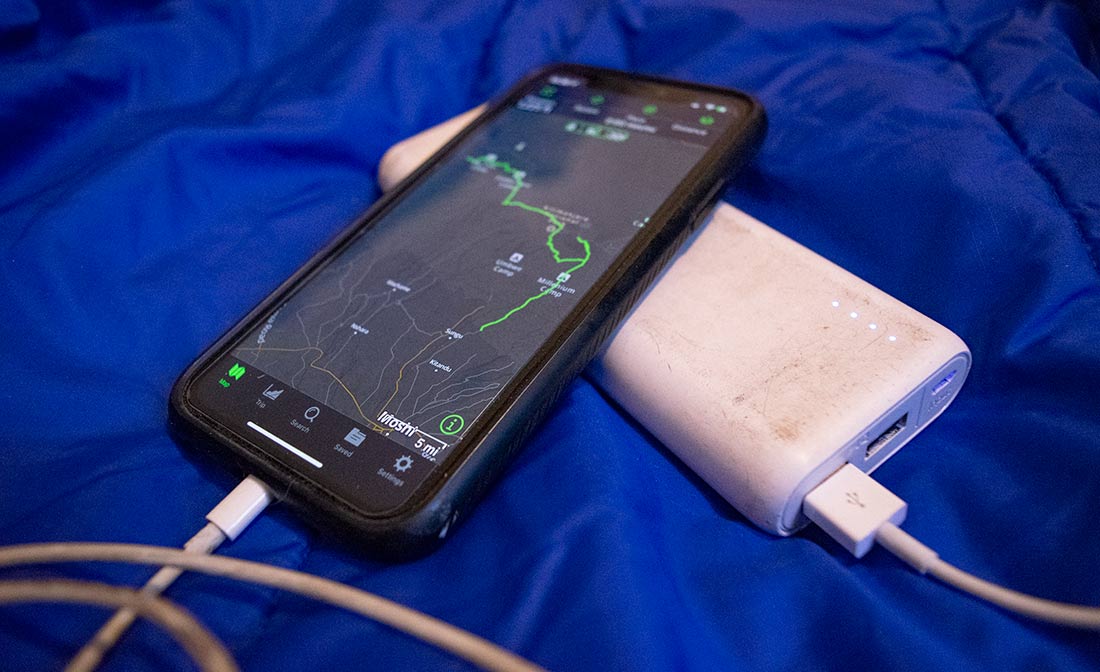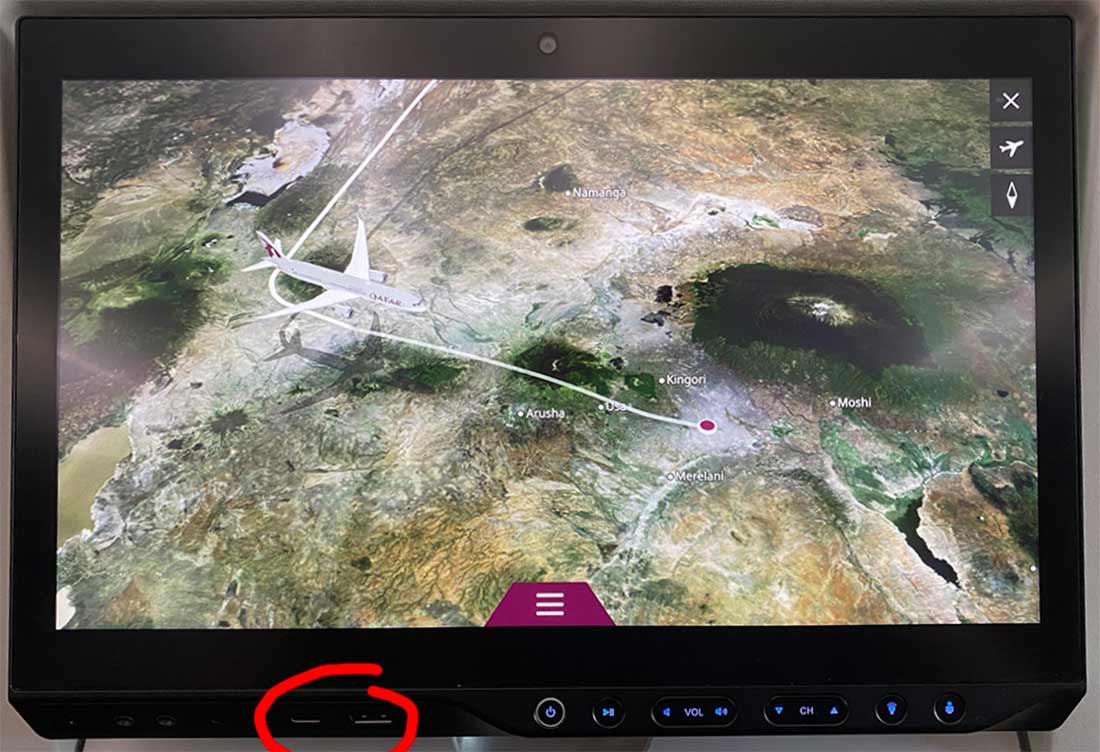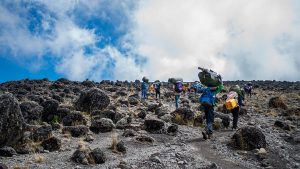Wouldn’t it be easier if there were universal charges, earbuds, camera batteries, and phones? It would make just one item in your hectic life easier. Unfortunately, we are pretty sure that’ll never happen. Even Apple can’t decide on charging cables and change with every major upgrade to their iPhones. It is frustrating to try and keep up. What do you do with all the old charging cables? If you are like most you have a drawer, box, or bin full of obsolete electronics.
The magnitude of that situation is outside the scope of this article. This article is about charging electronics while in Tanzania, on safari, and on Mount Kilimanjaro.
Airplane
Let’s start with the airplane. Depending on who you are flying with it could mean you’ll have a USB charging port on the seat in front of you. If not you’ll need a power bank in your carry-on luggage. Lithium batteries are currently not allowed in checked bags.
If you have wireless earbuds, they’ll work with your phone or tablet, but as of right now, not with the airplane. Either bring traditional plug earbuds or use the free ones they pass out on the flight.
LODGE

The lodges we use are in Arusha. It is a fairly large town by African standards and therefore it has better ways to charge devices. At these lodges, there are outlets in each room. However, if you are from the US, you’ll need an adapter. The outlets in Tanzania are the typical United Kingdom type. More than likely, they are the British “Type G” BS-1363 version. However, it could also be the “Type D” Indian BS-546 5 amp. But this is not very common. They may also have USB ports built into the outlets, but they don’t always supply enough power for charging. USB has had three major updates since first introduced.
The outlets in Tanzania supply between 220 and 240 volts. In the United States, electronics only need 110 to 120 volts. If you are not careful, you can burn up your device. However, most laptops, cell phones, and cameras are designed to be compatible with worldwide voltages. To be safe, check your owner’s manual or the internet for each of your devices.
THE MOUNTAIN
There are no charging stations on Kilimanjaro. It is your responsibility to bring chargers and make sure they are compatible. In addition to a charging device, we also recommend bringing spare batteries if your charger is depleted.
Of the two chargers you have as options, there are power banks and solar panels. Both work well, however, we have seen power banks last longer and have fewer issues than solar panels.
Our recommendation is to bring two power banks that at least 10,000mAh to 20,000mAh.
Furthermore, batteries do not work well in cold temperatures. Keep them wrapped in something or in your pocket. Sometimes you can revive them by warming them up. Keep in mind that the generic batteries last about half the amount of time as name-brand batteries such as Nikon or Canon. A “tough” camera can handle the elements better and is usually freeze, drop, and waterproof.
Most newer cameras have a USB cable for charging instead of a regular plug. This makes things easier.
ON SAFARI
Charging on safari is much easier since you will be staying in a lodge or tented camp each night. You should have enough charge each day by charging your devices as you sleep. Just remember to bring your wall charger and the Type G adapter. If for some reason, your adapter doesn’t work, talk to your guide and he can stop at a market so you to buy a new one.
Furthermore, all of our safari vehicles have charging ports throughout the vehicle. They are also equipped with wifi, as long as there is a strong signal.
Helpful tip
If your phone is close to capacity on storage. We recommend backing it up before you leave home. In addition, you can buy a flash drive that you can back up your photos and videos to while you are in Africa in case you lose, damage, or run out of space on your phone.
We hope this helps you prepare for your amazing adventure and feel free to contact us if you have further questions.





